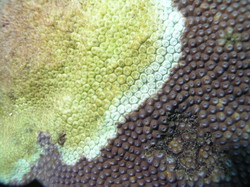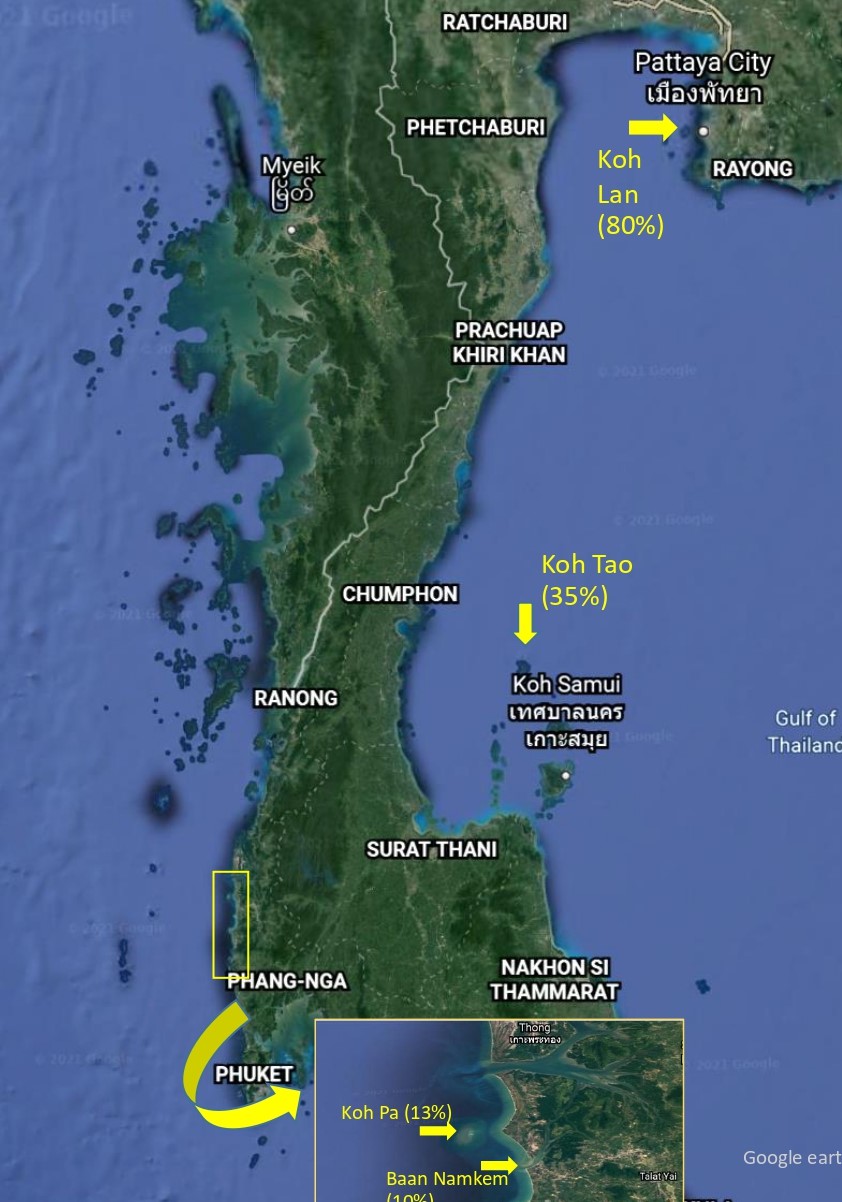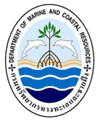Coral Disease Observations: We Need Your Help!
In the past 15 years, observations of coral disease have risen dramatically. To date, around 20 coral diseases have been described worldwide. While disease has been observed in both the Andaman Sea and Gulf of Thailand, there is no database of sightings and information on disease is not widely available. As a disease researcher from the United States, I am currently working with Niphon Phongsuwan of PMBC to change that. Our long-term goal is to establish a disease-monitoring program for Thailand and compile observations of disease for future reference.
In order for us to accomplish this goal, we need your help. We can only complete so many surveys on our own. As Greenfins divers who support overall reef health and conservation, your observations will be invaluable. Below are guidelines for reporting disease on a reef.
What to do if you see disease/think you see disease on a dive:
1.) Make sure it's disease and not bleaching.
- Is the coral tissue gone? Can you see skeleton? Is there an obvious band of color or tissue sloughing at the border of the disease?
2.) Try to eliminate other possible causes.
- Look around/under the coral for a Crown of Thorns starfish. Is it just parrotfish bites? Does it look like anchor, fishing equipment or dynamite damage?
3.) Note some information
- What does the disease look like?
- Which coral species is affected?
- Note the date
- Remember the reef location and depth of sighting. Latitude and Longitude are extremely helpful for locating the disease again.
- A picture is invaluable
4.) Notify someone! Send your pictures and information to one of the following:
- Niphon Phongsuwan: nph1959@gmail.com
- Carly Kenkel: carly.kenkel@gmail.com
- PMBC: pmbc@phuketinternet.co.th
Your individual observations will help us better evaluate the overall reef health of Thailand and contribute to future conservation efforts. Please don't hesitate to send us your information. "










